Neyyar Dam – The place of Neyyar river, silent Agastya hills, crocodiles, lions and much more
Lions, crocodiles, deer and different types of wild animals, pleasing scenery, mist’s beauty, rare orchids and butterflies, silent lake and splendid greenery – all in one place, that’s the beauty of Neyyar dam. From Thiruvananthapuram city, we need to travel 30 kms to reach Neyyar dam located in Kattakada. The dam is situated in Kallikadu Panchayat. To attract tourists, tourism department has arranged different programmes, including food and accommodation. Safari parks, boatings and trekking are other highlights, which attract families and those who love adventurous trips.
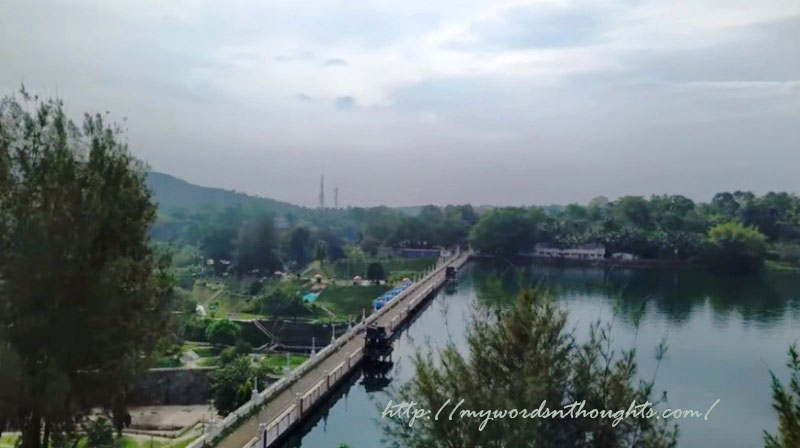
A distant view of the dam and the beautiful surroundings
It’s the childhood nostalgic memories of many people, about the legend of Saint Agastya who meditates in the deep forests and the deep mountain ranges which smell medicines and mantras. Such thoughts used to fascinate kids who were born one generation back. The river watered the whole area, down the hills and later a dam was built in 1958, which is now a favourite picnic spot for Thiruvananthapuram people as well. Dam was built for irrigation purposes, and it gave a solution to drinking problems.
Since the old age of civilizations, river banks are the cradles of new cultures and developments, and forms an integral part of social and economic lives of people residing there. Neyyar too is not an exception. Yet over the years due to illegal mining the river and its banks have faced threats. The river should not die – that’s the pray of all people who reside on its either sides.
Neyyar starts from Agasthya Koodam peak
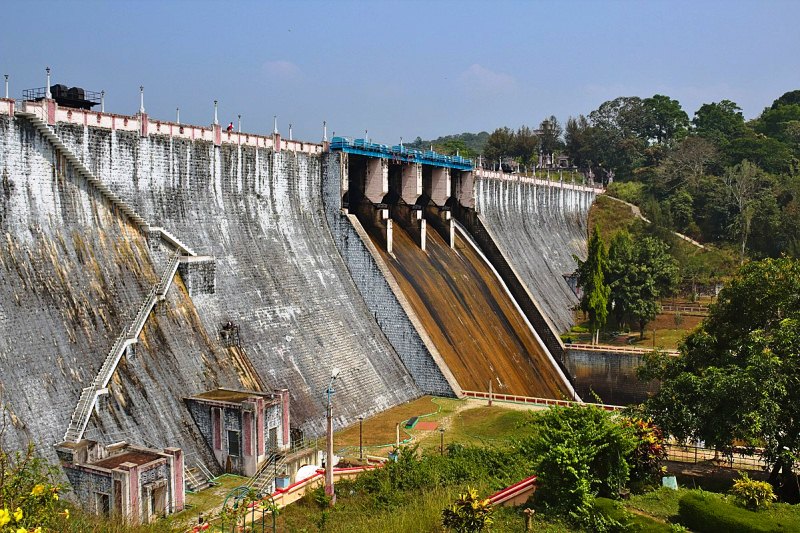
Neyyar Dam and nearby gardens
Agasthya Mudi is the highest peak of Sahya hill ranges, and Agasthyarkoodam is considered as the evergreen forest ranges. Steep mountain ranges – peculiarity of Agasthyarkoodam, also known as Agastya Mala. You can travel only by foot to reach here, and after that the path cuts downwards. Neyyar river is formed in small streams at the peak of mountain ranges somewhere. All these small streams join together at Kombai settlement colony to form a river. Many small streams also join it on the way down the mountain ranges, before it flows downwards.
There are two popular legends behind the origin of Neyyar river in Agastya Mala, and both are related to Saint Agastya. The saint who resided in the top of the hills used ghee for yaga and other religious rituals. Whatever left, he used to flush it in the drainage which reaches the bottom of the hill where locals reside. When it affected the drinking water, the sage converted ghee to water. Thus the river filled with ghee also got the name, ‘Neyyar’, which literally means ‘River of ghee’. Read more about Neyyattinkara Sri Krishna temple situated on the banks of Neyyar.
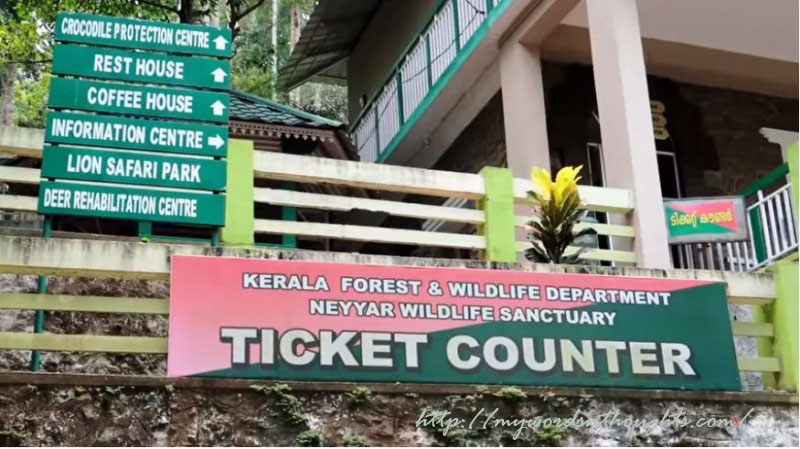
Entry point to the dam
There is yet another story related to Neyyar. The ghee floated by Saint Agastya was used by people for daily purposes. Saint strictly instructed people to use ghee for daily purposes only, and not to store it for future uses. This instruction was questioned by a local Madambi which irked the saint. So he converted the ghee to water, says another popular legend.
It may be ghee or water, but it’s true that the river originates somewhere in the location where the saint lived. It’s interesting that except Neyyar, no other river has been mentioned in Hindu mythology where ghee flows instead of water. Yet as per Vishnu Puruna, the first birth of Lord Vishnu – Malsya (fish) originated in a river where ghee flows instead of water. So there is a distant possibility of a link between Neyyar and Vishnu’s Avatars.
Neyyar ends at Lakshadweep Sea near Poovar
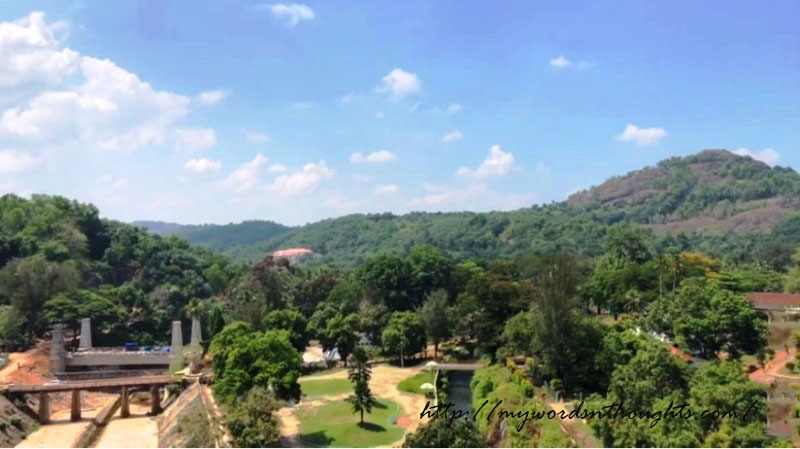
Hills visible from dam location
Neyyar is the southernmost river of the state of Kerala, the river which originates in Agasthya kooodam peak and finally dissolves in Poovar Sea. In between it forms many tributaries and streams and flows through dam, and waters human beings, animals and plants, thus completing a life cycle.
While you are riding in a boat in the streams of Neyyar beneath Neyyar dam, you can watch the spectacular blue hills and green trees in the horizon. Those misty mountain ranges include Kaalimala, Kaalipaara, Kondakettimala and Klaamala. Each mountain has its own stories to tell, and its deep secrets too, just like the mist covering it all time. There is a Kali temple at the top of Kaalimala, known by the name Kaalimala Kshetram. Kaalipaara too has one temple – Lokambika temple.
Though both the temples are dedicated to Hindu goddesses annual temple celebrations fall on Sivaratri season. The whole locals will arrive at the temples during Sivaratri, grand poojas are conducted and offerings are given. People celebrate the whole night and it ends only in the dawn. Mostly adivasis belonging to Kaani tribal community celebrate the eve.
Both the temples have holy ponds, which fascinate the tourists. Both the ponds rest in deep rocks and won’t dry up even during hot summers. Water is crystal clear even under hot summer sun. Apart from two Hindu temples, there is one annual pilgrim place for Christians, Thekkan Kurissumala located in the mountain ranges.
Each and every location of forests has local names – Kombanpaara, Mukkuttithara, Aanavaari etc to mention a few. In most cases such names are given by people for easy identification, when they visit the place once in a while. Later the names travelled through generations, and thus marked as place names of different locations of the remote forest areas.
Festival of spectacular sights
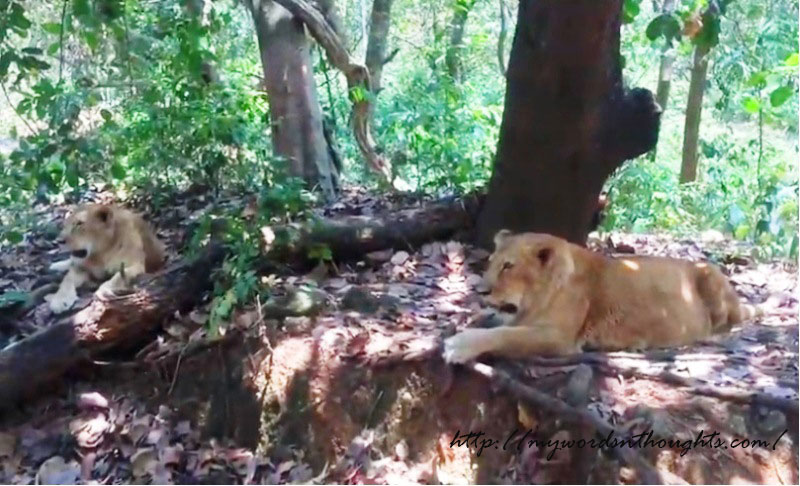
Lions resting in Lion safari park
Neyyar dam has one of the beautiful gardens, owned by Kerala government. Rare orchids, artificial waterfalls, a huge collection of colourful fishes in the aquarium, boating arranged by forest department, park, the beautiful stream in the midst of blue hills and green forests – they are much more beyond your expectations.
Lion safari park is located in a sub-island of Neyyar reservoir, and you can reach this place through land or by boat. The area is protected by iron fence, and visitors are taken to this place in fully protected and closed vehicles. Tourists can watch lions close, sitting inside the vehicles. Lions freely walk inside the lion sanctuary and very often stand on the roads inside the safari park. In short you get the illusion of lions standing inside deep forests, and you watch them close. Sadly this beautiful and attractive place is not familiar to tourists or even Malayalis.
The deer park is equally attractive as lion safari park, where hundreds of deer freely reside. Park is located in an isolated island, and deer freely walk inside the fences. Because of curiosity they often come near to us. It’s a very rare sight. Apart from Malayalis, this place is visited by foreigners and North Indians too.
A rehabilitation centre for crocodiles and alligators
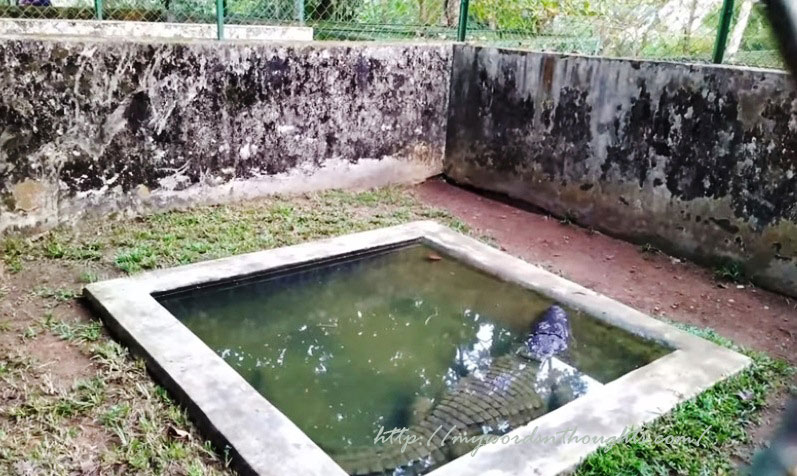
Decades back, crocodiles used to frequently attack locals, who come to Neyyar river for taking a bath or to wash clothes. Such news bits also found place in newspaper columns those days. In fact many people have lost lives, injured and crippled. Many such attacked people are still alive. Why these reptiles show such an enmity to human beings? What could be the reason? Perhaps humans’ approach to such living beings caused enmity in their minds. There were rumours that hunting of younger ones of these reptiles is the main cause. But there is no scientific proof behind it.
When attacks of crocodiles turned worse, government thought of starting a rehabilitation centre for them. That’s how Crocodile Park was built there. Now it’s one of the highlights of the tourist spot. Years later a rehabilitation centre was established in the memory of “The Crocodile Hunter” Steve Irwin and was named as Steve Irwin Crocodile Rehabilitation & Research Centre.
Sailing through the deep blue waters
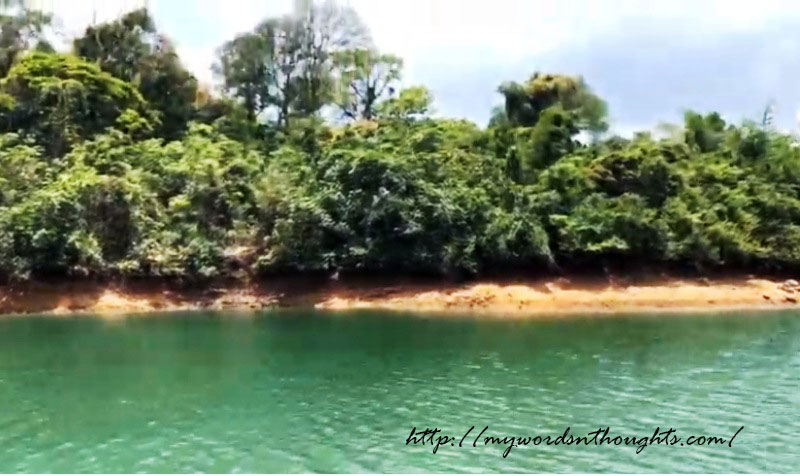
There are two watch towers in Neyyar tourist spot. A tourist gets a spectacular sight of the whole premises while standing at the top of the tower. Water bodies that unfold to many kilometres are visible from the top. Nature’s beauty beneath the mountains is indeed a rare watch. There are many rare medicinal herbs grown beneath the mountains. Trekking packages and boat trips can add beauty to your trip. A trekking trip to Meenmutti waterfalls can take two long days. Single day trekking trips are also available. When you opt for two-day trekking to Meenmutti, you need to stay at Kombai settlement colony at night before you start for the second-day trip of your adventurous journey. Neyyar river silently flows through the colony, just like a sleeping infant.
Neyyar dam was built for the irrigation purposes of Neyyattinkara Taluk of Thiruvananthapuram district and Vilavankodu Taluk of Kanyakumari District which was once a part of Kerala (now Tamil Nadu). Neyyar which originates from Agasta Mountain later joins with tributaries – Kallar, Valliyar and Mullayar. Water from Neyyar is taken away through two canals – left canal for Tamil Nadu and right canal for Kerala. The canal for Kanya Kumari district is closed for the past few years.
Construction of the dam was started in 1951 soon after independence and was opened to public in 1959. At that time total cost of construction was 4 crore. Even if inflation rates are adjusted according to present-day value, the construction of the dam was very cheap, enough to construct a bridge.
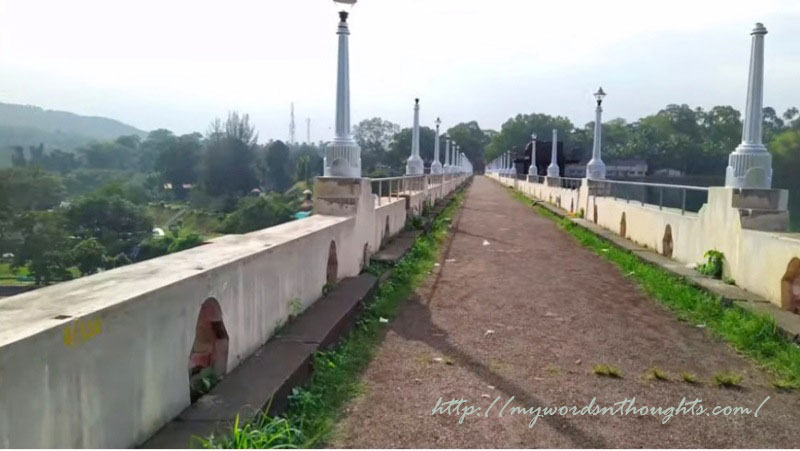
A close watch of the bridge built across the river
The place for elephant safaris
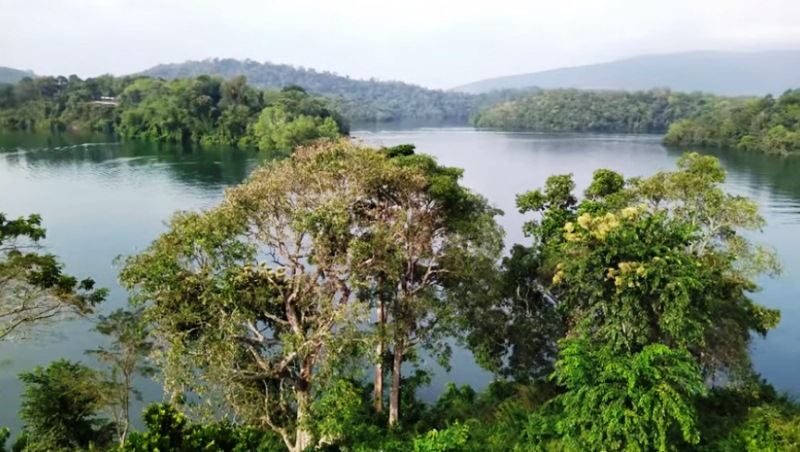
Splendid water bodies and greenery
Kappukad Jayashree is one among the famous elephants used for safaris. She is a member of elephant sanctuary in Kappukad, located in Kottur Panchayat. She carries tourists to forests for a ride and safely takes them back. Injured wild elephants are brought to this sanctuary and given treatment. There are more than 10 tamed elephants here, which were once brought here with injuries.
Apart from elephant safaris a tourist can also enjoy elephant bath and anayoott (feeding of elephants). Special cottages are also arranged here for tourists, to stay close to nature and forests. You can take roadways or waterways to reach Kappukad. Flatboats (Changadam) are also available for water transport to reach here.
Agastyaayanam – Saint Agastya is being worshipped at the top most peak of Agastya hills. Short trees and shrubs form a part of the geographical features of this place. As per beliefs the saint was also short.
Why such a beautiful place doesn’t become a great tourist spot? Like Bharatapuzha, why didn’t poets write beautiful poems about it? Why is it still unknown to many Malayalis? Why it doesn’t become a shooting location for films? Is it because of the curse of the saint? Or is it because of the mysteries behind flowing water? As per beliefs, the sage Agastya still lives somewhere in the mountain ranges. Like every river, Neyyar too has a childhood, youthful days and old age when it joins the seas.
A few images of Neyyar dam and surroundings for you
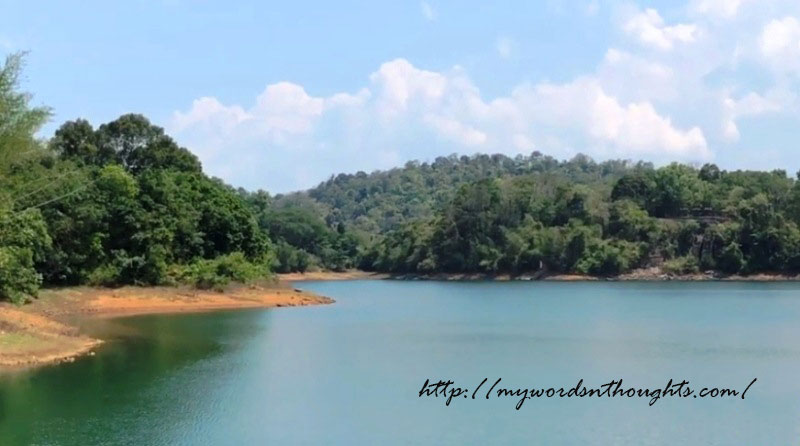
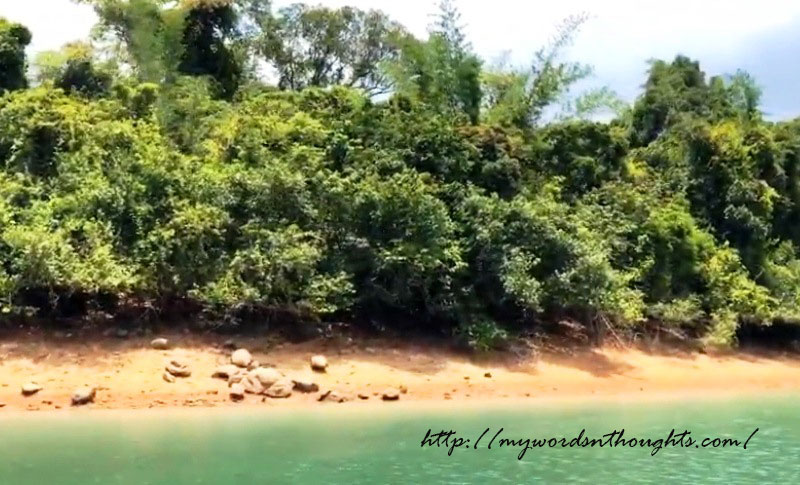

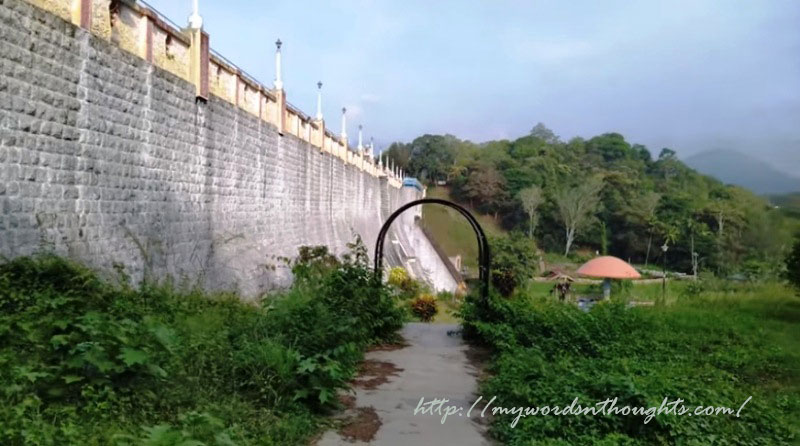
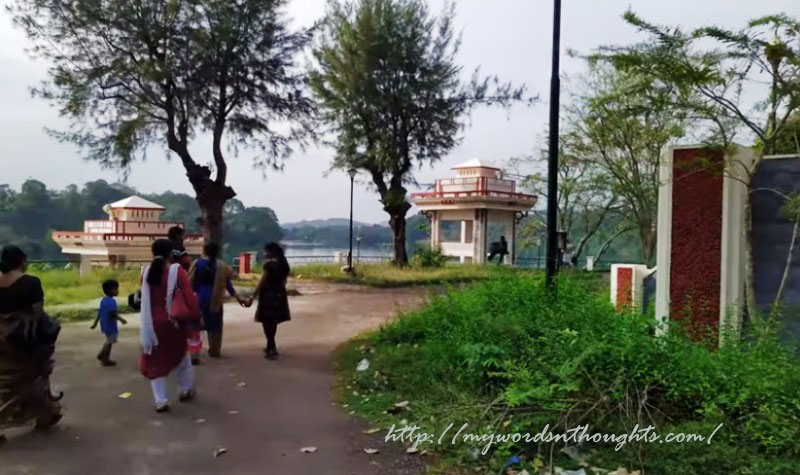
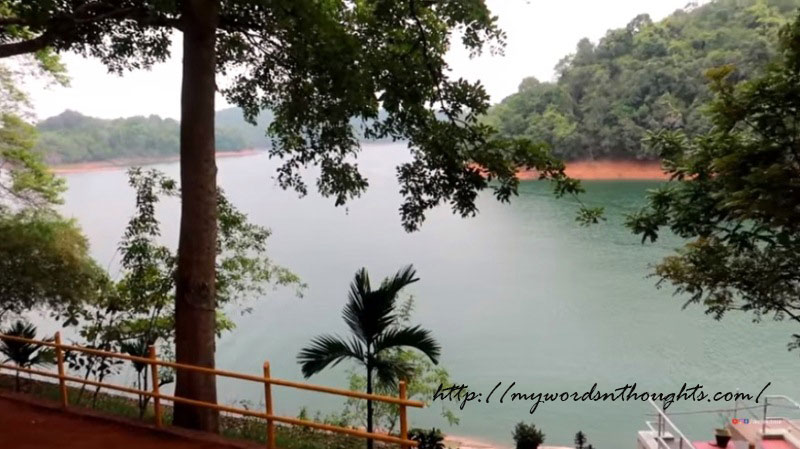
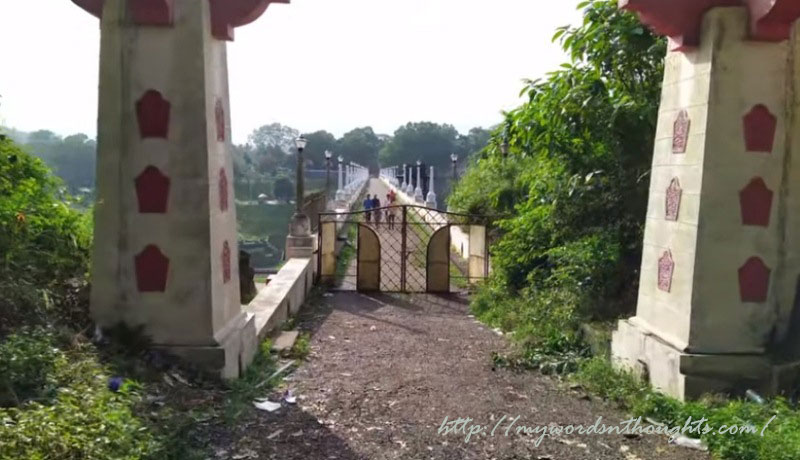
You can read a few more articles on some of the major tourist spots of Kerala here. Here is the page link. Click on the images in the gallery to read














Recent Comments